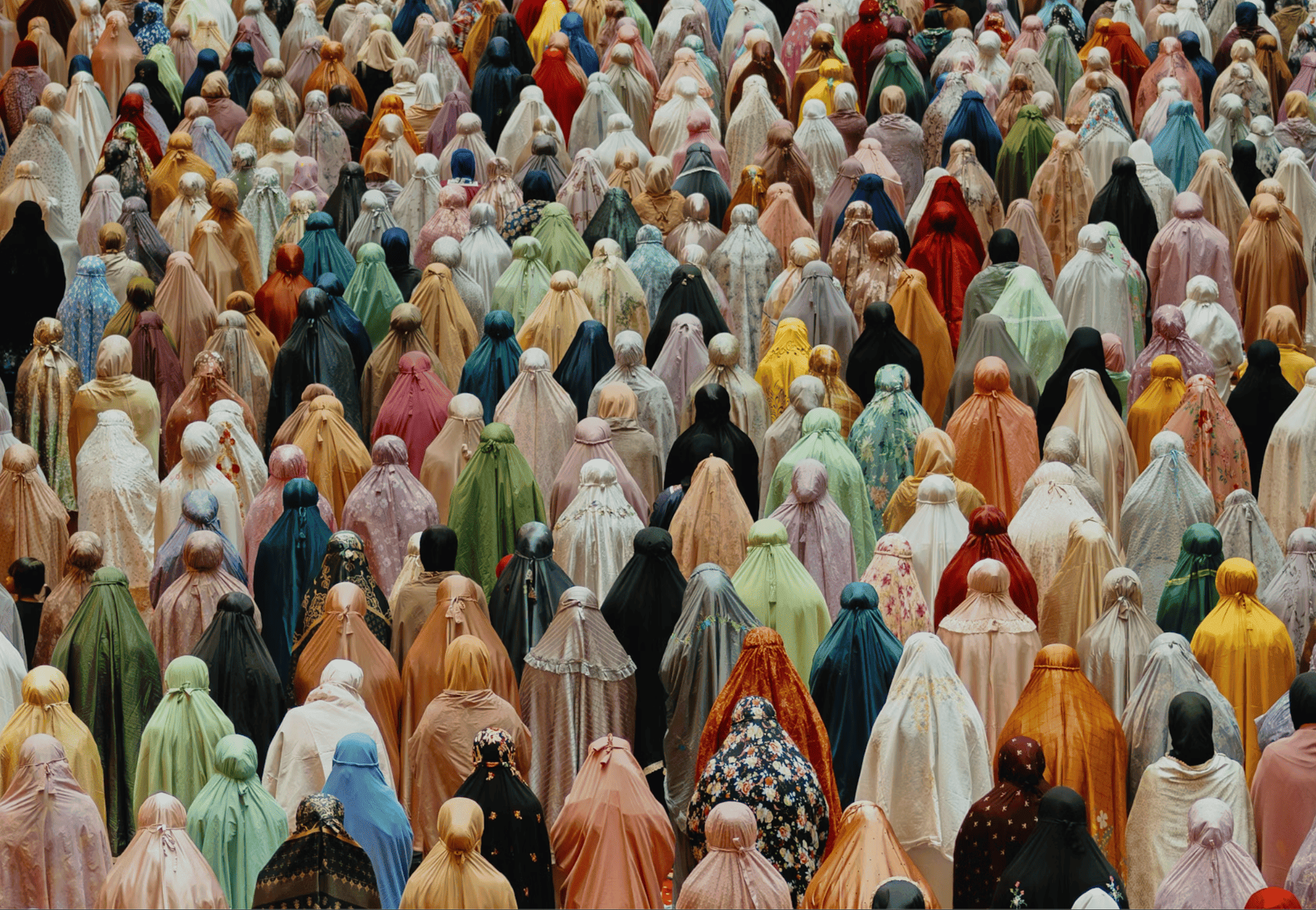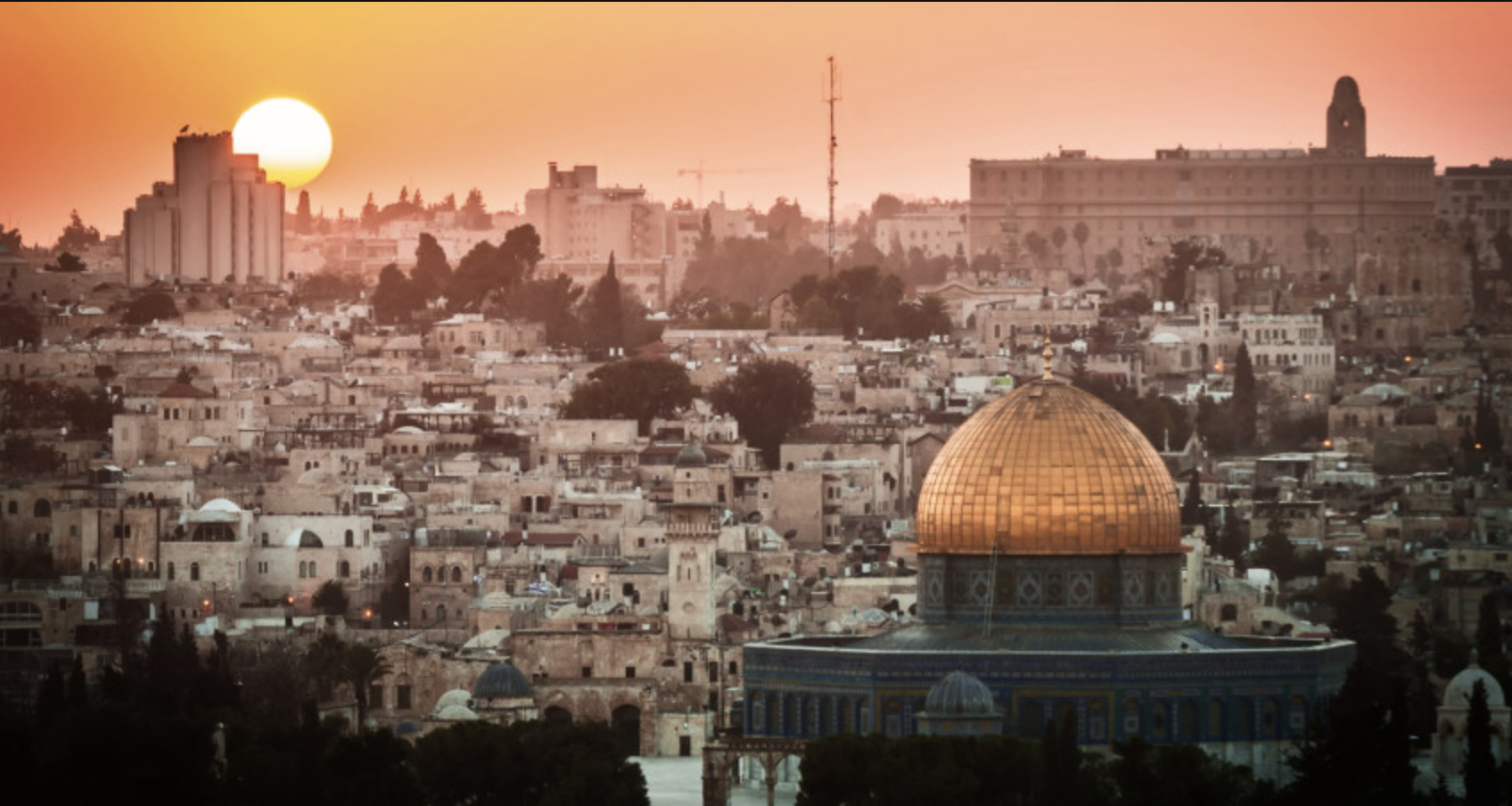Hijrah
Hijrah classically referred to the migration from the land of the Kuffar to the land of the Believers. Its usage in the Quran and the Sunnah is seen to be referring to as migration towards Allah. Hijrah is more general than being restricted to migration from kuffar lands alone. Hijrah is an act of worship done for the sake of Allah. Allah tells us in the Quran,
الَّذِينَ آمَنُوا وَهَاجَرُوا وَجَاهَدُوا فِي سَبِيلِ اللَّهِ بِأَمْوَالِهِمْ وَأَنفُسِهِمْ أَعْظَمُ دَرَجَةً عِندَ اللَّهِ وَأُولَٰئِكَ هُمُ الْفَائِزُونَ
The ones who have believed, emigrated and striven in the cause of Allah with their wealth and their lives are greater in rank in the sight of Allah . And it is those who are the attainers [of success]. [Surah Taubah, 20]
It is narrated on the authority of Amirul Mu’minin, Abu Hafs ‘Umar bin al-Khattab who said: I heard the Messenger of Allah (ﷺ) say:
إنَّمَا الْأَعْمَالُ بِالنِّيَّاتِ، وَإِنَّمَا لِكُلِّ امْرِئٍ مَا نَوَى، فَمَنْ كَانَتْ هِجْرَتُهُ إلَى اللَّهِ وَرَسُولِهِ فَهِجْرَتُهُ إلَى اللَّهِ وَرَسُولِهِ، وَمَنْ كَانَتْ هِجْرَتُهُ لِدُنْيَا يُصِيبُهَا أَوْ امْرَأَةٍ يَنْكِحُهَا فَهِجْرَتُهُ إلَى مَا هَاجَرَ إلَيْهِ
“Actions are (judged) by motives (niyyah), so each man will have what he intended. Thus, he whose migration (hijrah) was to Allah and His Messenger, his migration is to Allah and His Messenger; but he whose migration was for some worldly thing he might gain, or for a wife he might marry, his migration is to that for which he migrated.” [Bukhari & Muslim]
Imam al-Ba’li in Kash al-Mukhaddarat states that hijrah is obligatory upon every person who is unable to display or follow their religion and the rule of disbelief and the misguided innovated sects is dominant.
What defines Dar al-Kufr? The Muslims could be a majority but if the land is being ruled by the rule of Kufr and innovation is dominant then it is to be considered as Dar al-Kufr. Likewise if the Muslims are a minority but they control the authority and rule by Islam, then it is considered as Dar al-Islam. It all goes back to political authority.
If a person is able to practice the 5 Pillars of Islam or even Salah, Zakat, and Sawm, then they are living in a blessing. The spread of major sins is not enough to make hijrah obligatory upon a person. What if a person is forced to break their fast or punished for praying as Muslims? Hijrah becomes wajib if such a person is capable. Allah has mentioned a severe punishment for not making hijrah. Allah says,
إِنَّ الَّذِينَ تَوَفَّاهُمُ الْمَلَائِكَةُ ظَالِمِي أَنفُسِهِمْ قَالُوا فِيمَ كُنتُمْ قَالُوا كُنَّا مُسْتَضْعَفِينَ فِي الْأَرْضِ قَالُوا أَلَمْ تَكُنْ أَرْضُ اللَّهِ وَاسِعَةً فَتُهَاجِرُوا فِيهَا فَأُولَٰئِكَ مَأْوَاهُمْ جَهَنَّمُ وَسَاءَتْ مَصِيرًا
Indeed, those whom the angels take [in death] while wronging themselves – [the angels] will say, “In what [condition] were you?” They will say, “We were oppressed in the land.” The angels will say, “Was not the earth of Allah spacious [enough] for you to emigrate therein?” For those, their refuge is Hell – and evil it is as a destination. [Surah an-Nisa, 97]
If a person is unable to travel, then in this case the person is excused. The Hanabilah mention that if this is a woman, then she can emigrate even without a mahram. This is a heavy statement, for the Hanabilah are quite strict in this matter and don’t even allow to do Hajj without a mahram. Why? For her religion is at risk.
If a person is able to display their religion then hijrah becomes recommended upon them instead of an obligation. Why? This is so that the numbers of the non-Muslims are reduced, their influence and company is avoided, and one can be prepared (if needed) to wage jihad against them. We can see the negative influence the company has on many Muslims who have been living in foreign countries even today. At times, it could be recommended to stay. This is, if the person has a role in spreading and teaching Islam to the masses and calling people to the Message of Islam. People in countries like the United Kingdom, United States of America, Canada and so many others has people becoming Muslims because they are introduced to Islam by the Muslims living there. We cannot have Muslims living in one corner and the rest of the world living in another. How will Islam reach the ignorant?
Imam al-Ba’li continues by stating that non-Muslim prisoners of war are of 2 categories:
- Become prisoners automatically the moment they are captured. This includes women and children. It is prohibited to kill them. This is a means through which enslavement would rightfully occur. This does not probably occur today and has discussion regarding it.
- Become prisoners after battle or conquest. This includes adult male fighters. The Imam has the authority to choose what happens to them based on the public benefit (maslaha) of the Muslims and Ijtihad. It cannot be made out of personal interest, financial gain, or desires; rather it is an obligation upon him to keep the best interest of the Muslim state in mind. The prisoners are to be either enslaved, executed, or exchanged for a ransom or a captured Muslim in the other camp. If there is confusion and opinions change, then executing the prisoners is best. Why? Because they could pose as a risk, harm the Muslims, or act as spies etc.
It is not permissible to kill the following:
- Children
- Women
- Hermaphrodites
- Monks
- Elderly
- Disabled (Long term illness)
- Blind
This is as long as these people have no say in the matter, did not fight, and did not encourage others to fight. The normal public which could include able-bodied men as well are not be killed as long as they have not participated by raising arms against the Muslims.
If the non-Muslims used the above mentioned entities as shields, then they are to be attacked with the intention of attacking the fighters and there is no sin upon them if on the people from the mentioned categories is killed. These type of morals have to be in place as this differentiates between Islamic jihad and the dirty war led by disbelieving states. No state can survive without military strength. For Muslims, morals are essential and have to be upheld as Allah will hold them to account. The other party would have no shame in killing children, harming the women, or torturing the elderly as the disbelievers think they will not be held to account, so they do whatever they desire to attain their objective irrespective of how immoral it is.
If non-Muslims used Muslims as shields, then they are not to be attacked unless absolutely necessary and there is a fear for life and extreme harm. They are only attacked then, with the intention of attacking the fighters and not the Muslims. Muslim blood has higher sanctity than that of others.
.
وَعَلَى اَلْإِمَامِ مَنْعُ مُخَذِّل ٍ وَمُرْجِفٍ, وَعَلَى اَلْجَيْشِ طَاعَتُهُ وَالصَّبْرُ مَعَهُ
The Imam must prevent deserters and demoralizers in the army. The army is obligated to obey the Imam and to remain patient with him. Obedience to the leader is highly stressed upon for only by this can we have a strong congregation, unity, and have an impact. People can give their opinions like the sahaba gave to the Prophet ﷺ but the decision of the Imam is final. This is a time where psychological strength and mental focus is very important and the Imam has to be very careful about this.
وَتُمْلَكُ اَلْغَنِيمَةُ بِالِاسْتِيلَاءِ عَلَيْهَا فِي دَارِ حَرْبٍ,
فَيُجْعَلُ خُمُسُهَا خَمْسَةَ أَسْهُمٍ : سَهْمٌ لِلَّهِ وَلِرَسُولِهِ, وَسَهْمٌ لِذَوِي اَلْقُرْبَى وَهُمْ بَنُو هَاشِمٍ وَالْمُطَّلِبِ, وَسَهْمٌ لِلْيَتَامَى اَلْفُقَرَاءِ, وَسَهْمٌ لِلْمَسَاكِينِ, وَسَهْمٌ لِأَبْنَاءِ اَلسَّبِيلِ
Ghanimah (spoils of war) are the resources that are taken after a victory from the enemy in battle. Al-Fai on the other hand are the resources that are captured through other than battle when the enemy has surrendered or laid down their arms in submission etc.
The ownership of the ghanimah comes under the Muslims immediately and there is no need to wait till returning back to the Muslim lands. Four-fifths of the spoils are distributed among the Muslim fighters. The remaining one-fifth of the spoils are divided into 5 shares:
- One share for Allah and His Messenger ﷺ
- Imam al-Ba’li says that this is out of seeking barkah as money doesn’t reach Allah. At the time of the Prophet his share was used for the welfare (masalih) of the Muslims.
- One share for His ﷺ Relatives: Bani Hashim & Family of al-Mutallib
- This is separate from Zakat where only Bani Hashim are mentioned.
- One share for Poor Orphans
- An orphan is one who has no father and hasn’t reached the age of puberty. Once the person reaches the age of puberty then they are not considered an orphan. Losing the mother would not make one an orphan. If it is used for such, then it is used only metaphorically and not technically.
- One share for the Poor
- One share for Wayfarers
وَاعْلَمُوا أَنَّمَا غَنِمْتُم مِّن شَيْءٍ فَأَنَّ لِلَّهِ خُمُسَهُ وَلِلرَّسُولِ وَلِذِي الْقُرْبَىٰ وَالْيَتَامَىٰ وَالْمَسَاكِينِ وَابْنِ السَّبِيلِ إِن كُنتُمْ آمَنتُم بِاللَّهِ وَمَا أَنزَلْنَا عَلَىٰ عَبْدِنَا يَوْمَ الْفُرْقَانِ يَوْمَ الْتَقَى الْجَمْعَانِ وَاللَّهُ عَلَىٰ كُلِّ شَيْءٍ قَدِيرٌ
And know that anything you obtain of war booty – then indeed, for Allah is one fifth of it and for the Messenger and for [his] near relatives and the orphans, the needy, and the [stranded] traveler, if you have believed in Allah and in that which We sent down to Our Servant on the day of criterion – the day when the two armies met. And Allah , over all things, is competent. [Surah al-Anfal, 41]
.
وَشُرِطَ فِيمَنْ يُسْهَمُ لَهُ إِسْلَامٌ
. Being Muslim is a condition to become eligible to receive a portion of these shares.
.
ثُمَّ يُقْسَمُ اَلْبَاقِي بَيْنِ مَنْ شَهِدَ اَلْوَقْعَةَ: لِلرَّاجِلِ سَهْمٌ, وَلِلْفَارِسِ عَلَى فَرَسٍ عَرَبِيّ ٍ ثَلَاثَةٌ, وَعَلَى غَيْرِهِ اِثْنَانِ. وَيُقْسَمُ لِحُرٍّ مُسْلِمٍ وَيُرْضَخ ُ لِغَيْرِهِمْ
The remainder of the spoils are distributed between those who fought and participated in the battle.
- A foot-soldier receives one share.
- A cavalry man mounted on an Arabian horse receives three shares.
- It is said that this is because of the special nature of the horse during battle and this makes the warrior more beneficial/impactful in battle.
- A cavalry man mounted on any other horse receives two shares.
The ghanimah are distributed to free male Muslims. Anyone else can receive some kind of a reward for their contribution but that has to be less than the amount of a single share. This is decided by the Imam. The Hanabilah state that even a non-Muslim would receive a share as long as they are fighting with the permission of the Imam of the Muslims. This distribution goes back to the ijtihad of the Imam and is not placed in stone such that they cannot be changed. However, there needs to be justice during the distribution.
.
وَإِذَا فَتَحُوا أَرْضًا بِالسَّيْفِ خُيِّرَ اَلْإِمَامُ بَيْنَ قَسْمِهَا وَوَقْفِهَا عَلَى اَلْمُسْلِمِينَ
ضَارِبًا عَلَيْهَا خَرَاجًا مُسْتَمِرًّا, يُؤْخَذُ مِمَّنْ هِيَ فِي يَدِه
وَمَا أُخِذَ مِنْ مَالِ مُشْرِكٍ بِلَا قِتَالٍ كَجِزْيَةٍ وَخَرَاجٍ وَعُشْرِ فَيْء ٍ لِمَصَالِح اَلْمُسْلِمِينَ, وَكَذَا خُمُسُ خُمْسِ اَلْغَنِيمَةِ
If the Muslim army conquers a land by force, the Imam (or states leader) can choose between distributing the land among the fighters or declaring it as a waqf for the Muslims. It cannot be bought and sold, rather it remains for the benefit of the Muslims and its usage can be specified. When it is declared as a waqf, the Imam can implement a form of annual tax that is given to the state for the benefit of the Muslims. It is taken from whoever is in control of it at the said time. Waqf needs to be taken care of. It cannot just be declared a waqf and then left like that without fulfilling its intended purpose. A person or a group of people will be selected to execute this task and they get an allowance/salary from it.
Ghanimah is the resources like weaponry, animals, provisions etc that are taken from the opposing side in the battlefield. Land taken by force is not called ghanimah. Al-Fai’ is anything that is taken from the wealth of the disbelievers outside of the battlefield (without fighting) like:
- The Jizyah
- The Tenth or a Twentieth
- This tax is attributed to Umar Ibn al-Khattab.
- It is the tax levied upon non-Muslim traders trading in Muslim lands. This tax is a tenth (10%).
- Such a trader (harbi) is not a citizen and is from a land which is an enemy/hostile to the Muslims.
- The non-Muslim citizen who is under state protection (dhimmi) pays a twentieth (5%) as a tax.
- The Hanabilah are quite strict in following Umar Ibn al-Khattab in such matters as Imam Ahmad was a strong follower of the Fiqh of the Sahaba.
- Other scholars treat the decisions of the sahaba and specifically the decisions of the 4 Khulafah in this scenario as political ijtihad. Imam Malik and Imam Abu Hanifa many times differentiated the actions of the Prophet as a ruler and else-wise, keeping open the doors for ijtihad.
Also, the fifth of a fifth is taken from the ghanimah. It is like wealth that is being returned to the Muslims.
.
Based on the Hanbali primer, Akhsar Al-Mukhtasarat authored by Ibn Balban al-Hanbali as taught by Sheikh Zahed Fettah حفظه الله













